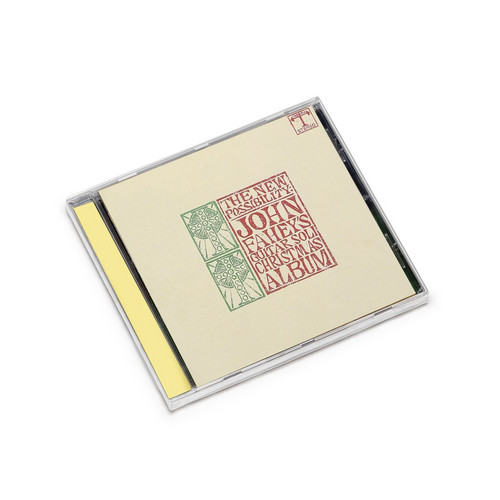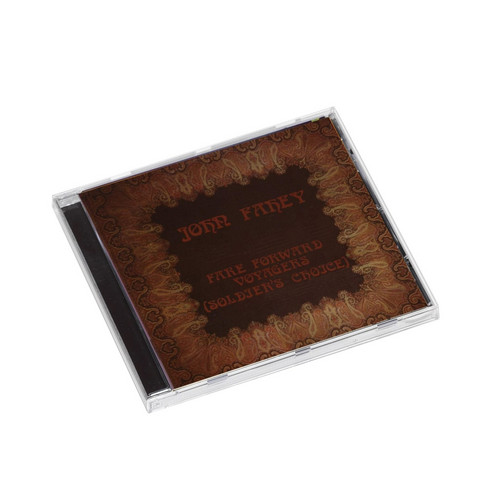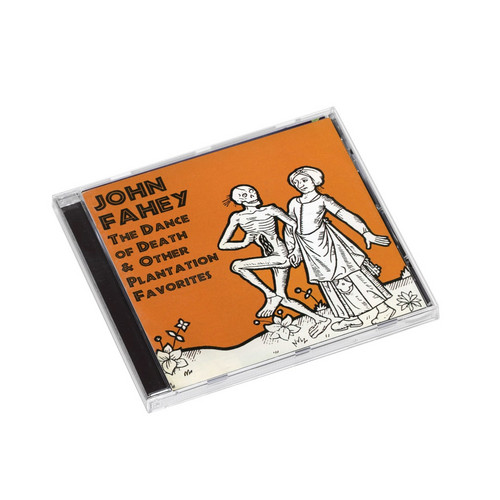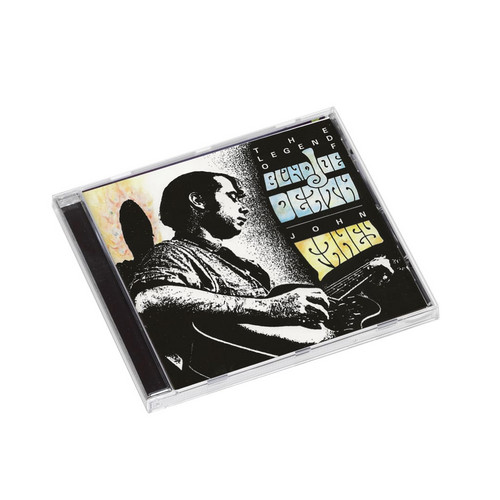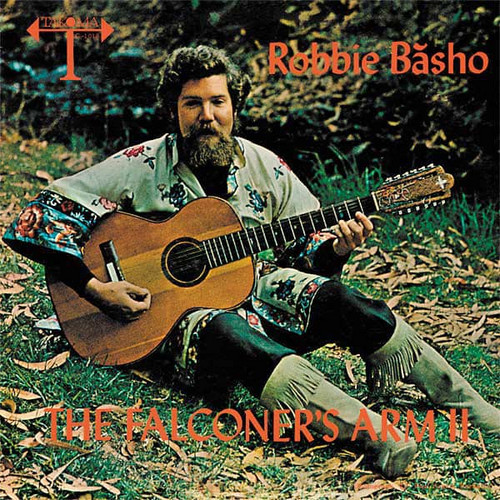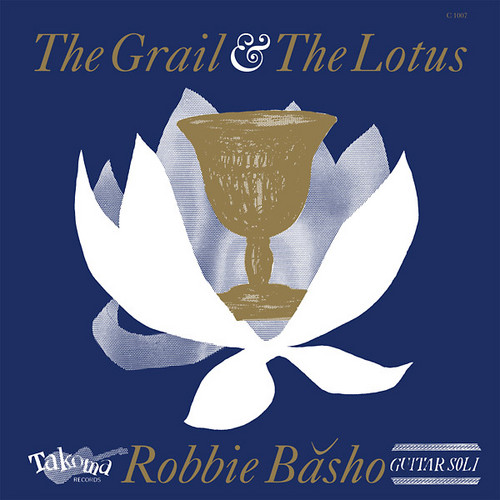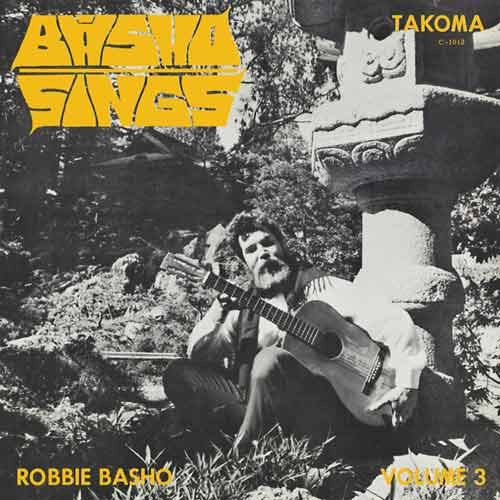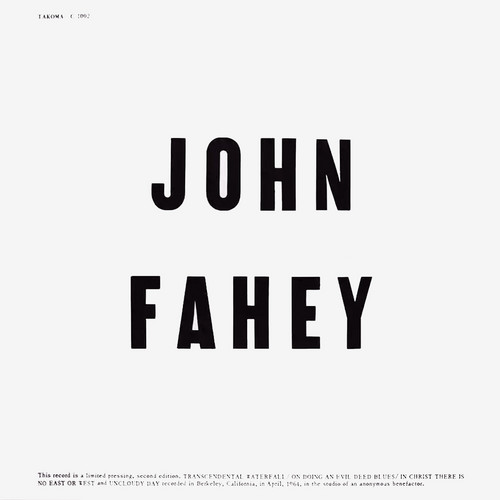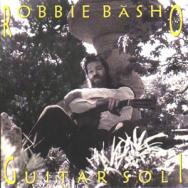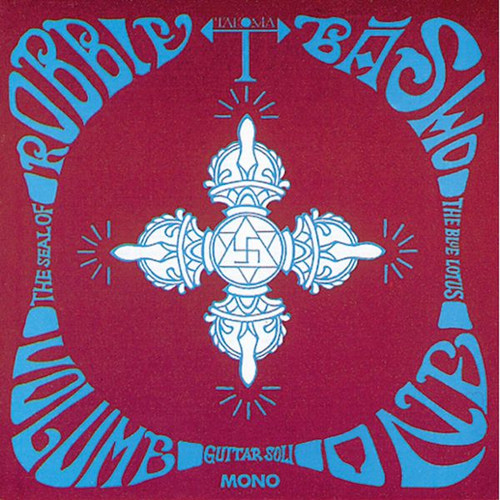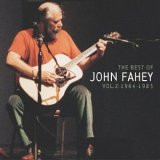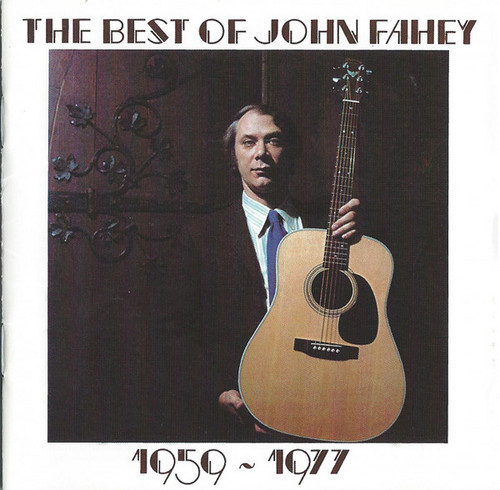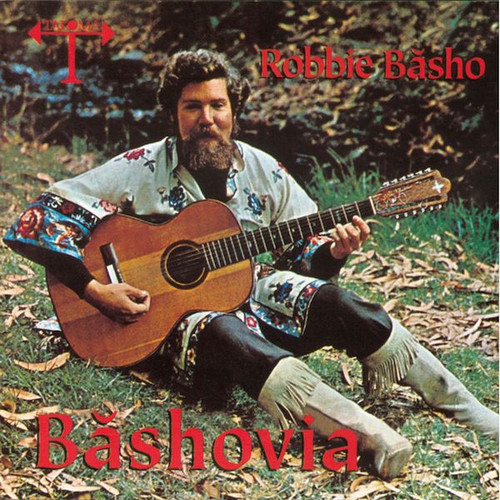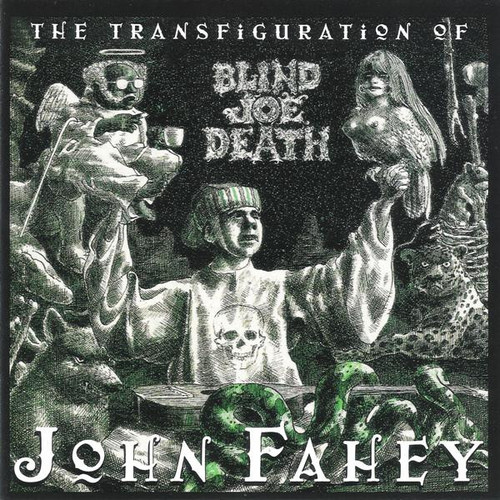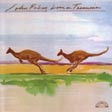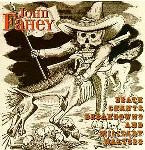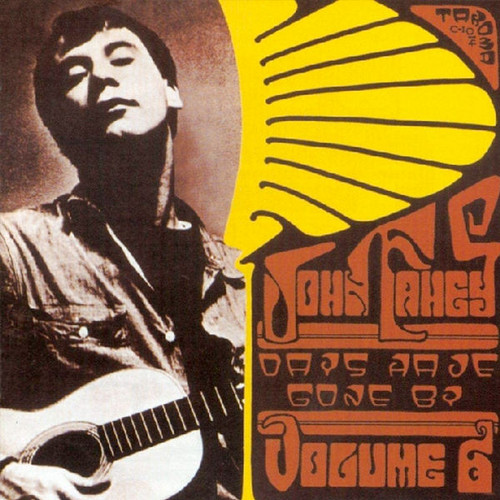★Takoma
Christmas Soli
CD. Remastered edition: John Fahey has made a habit of recording a new album of Christmas music every five or six years, but The New Possibility, which was originally released in 1968, is still his best. One of the best and most influential acoustic guitarists of his generation, John Fahey's music fused past and present, borrowing from the traditions of blues and folk music and filtering them through a modern musical viewpoint. Some of Fahey's most striking (and most popular) work appeared on a …
Fare Forward Voyagers (Soldier's Choice)
Nailed as John Fahey’s ‘non-Christian religious album’, where he ‘found’ Eastern religion and kick-started the New Age movement, Fahey said, in 1990, that it was his greatest guitar record. Considering the often-puzzling self-mythologizing that accompanied earlier albums, Fahey’s sleeve dedication to “my guru, Swami Satchidananda” and booklet extolling the virtues of Yogaville West, “a growing spiritual community in the beautiful mountains of Lake County, Northern California” were shockingly unt…
Volume 3 / The Dance of Death and Other Plantation Favorites
Originally released in 1964, Dance of Death offers a glimpse of an artist in transformation. More than half the album's titles draw from the traditional blues and country repertoire Fahey had spent his teen years and young adulthood collecting, listening to, and learning to play, yet the recordings proved once and for all that his interests lay in musical transfigurations rather than preservation -- John Fahey was not afraid to use these old tunes as raw material.
Volume 1 / Blind Joe Death Volume 1
2016 remastered edition. "For several years major labels had been issuing records in both mono and stereo formats. By 1967 Takoma was doing well enough financially to justify the recording of John Fahey's first and second albums for the burgeoning stereo market. Thus Vol.1: Blind Joe Death, as the record would be titled henceforth, was recorded for the third time and it is probably this release that most people are familiar with today. For the new version Fahey recorded all but one song on the a…
The Falconer's Arm 2
Limited edition pressing of 500 copies. Originally released by John Fahey's Takoma label in 1967. The Falconer's Arm pair of LPs is widely considered Basho's best work; monumental pieces of folk guitar invention from the pioneer, with guitar lines in unusual tunings influenced by both blues and Indian music. Fully remastered with excellent sound.
Drawing his name from a Japanese poet, his musical style from eastern raga sounds and his sartorial style from American Indians, Robbie Basho was eclec…
The Grail & The Lotus
A reissue of Robbie Basho's The Grail & The Lotus, originally released in 1966. It's become an oft-quoted statement that John Coltrane was the Father, Pharaoh Sanders was the Son, and Albert Ayler, the Holy Ghost. It could arguably apply to the holy trinity of steel string guitarists as well. Many claim John Fahey to be the Father, Kottke was considered the Son, and Robbie Basho would certainly be considered the Holy Ghost. The Basho/Ayler similarities are many, and both pushed their idioms furt…
Basho Sings
A reissue of Robbie Basho's Basho Sings, originally released in 1967. It's become an oft-quoted statement that John Coltrane was the Father, Pharaoh Sanders was the Son, and Albert Ayler, the Holy Ghost. It could arguably apply to the holy trinity of steel string guitarists as well. Many claim John Fahey to be the Father, Kottke was considered the Son, and Robbie Basho would certainly be considered the Holy Ghost. The Basho/Ayler similarities are many, and both pushed their idioms further physic…
Blind Joe Death
John Fahey’s first album, released in 1959 for the record label he co-founded, is a beautiful introduction to this incredible artist. Blind Joe Death remains a wonderful album and displays Fahey’s ability to re-interpret the blues and folk idioms prevalent at the time in his own inimitable style. The album's mystique probably owes more to the 1959 record's rarity (and utter oddity in the context of its era) than the music, in which Fahey's experimental blues-folk acoustic fusion is just be…
Guitar soli
The debt that modern guitarist composers owe to the late Robbie Basho can hardly be overstated. Though Fahey invented the genre and Kottke proved its marketability, it was Basho's technique, vision, and self-image that resonated most strongly with Will Ackerman and the so-called New Age guitar movement he founded. It's a crime Basho's music hasn't been available on record for many years. Now older guitar fans can welcome back an old friend and newer ones can learn where it all came from on this …
America
Though America was released in 1971 as a single LP, finger-style guitarist John Fahey conceived it as a double album. This CD finally allows Fahey's full vision to be heard (an additional nine tracks are included here for the first time). It's a true treat for Fahey lovers. The title track features the guitarist on the 12-string guitar, sounding more resonant than ever on the seven-minute composition. "Dvorak" is based on the composer's Eighth Symphony, which Fahey tackles in fine fashion. Fahey…
Seal Of The Blue Lotus
Seal of the Blue Lotus is the 1965 debut from the extraordinary folk guitarist Robbie Basho, who released numerous albums for John Fahey's Takoma label during the '60s. His mystical approach to six- and 12-string guitar improvisation shares many similarities to John Fahey in that Basho, too, was inspired by Eastern modalities -- his six-string melodies recalling the Indian ragas of Ravi Shankar's "Dhun in Musra Mund." "Mountain Man's Farewell" is an outstanding piece that displays the early seed…
Best Of Fahey V2 1964-83
this now deleted compilation concentrates on Fahey’s best work from his later years(1964-83) at Takoma, presenting many tracks new to CD. Also included are three tunes from his long-lost and unreleased Takoma album, "Azalea City Memories", as well as a long work, ‘The Fahey Sampler’, rare and unheard for many years
The Best Of John Fahey: 1959-1977
long deleted album by John Fahey, simply one of the most original & expressive guitarists ever, created the "American Primitive Guitar" genre w/his 1st Takoma Records release in 1959. This new comp concentrates on his best work from his later yrs at Takoma, much never available on CD. Also included are 3 tunes from his long-lost & unreleased album "Azalea City Memories," as well as a long work "They Fahey Sampler" rare & unheard for many yrs
Bashovia
Drawing his name from a Japanese poet, his musical style from eastern raga sounds and his sartorial style from American Indians, Robbie Basho was eclectic and eccentric. He was also one of the most gifted and original acoustic guitarists that the John Fahey/Leo Kottke/William Ackerman axis produced. Recording for Fahey's Takoma Records, and being cited by Ackerman as a principal influence on the founding of Windam Hill Records, never produced the kind of fame and acclaim that Basho's prodigious …
The Transfiguration of Blind Joe Death
Another of Fahey’s most highly regarded records, ‘The Transfiguration of Blind Joe Death’ was recorded in 1965 and shows Fahey on absolutely blistering form. The guitarist Leo Kottke has named this record as his favourite in Faheys 35 album back catalogue, so there must be something quite special about it right? Well there certainly is, this is his finest blues album, moulding the sound to his taste, fitting in ragtime and Indian classical music in there somewhere to come out with a breathtaking…
Live in Tasmania
The only legally issued live recording by John Fahey came about through an unusual set of circumstances in 1980. Allegedly Fahey was touring Australia and decided on the spur of an inebriated moment that he wanted to play in Tasmania. A hall was booked at Hobart University, an audience rounded up, and the resulting show was recorded. There was no sound check and a large part of the concert was performed for the first time or improvised on the spot. It is quite possible that the audience had prob…
Death Chants, Breakdowns & Military Waltzes
Opening with the incredible 'Sunflower River Blues' (covered recently by Jack Rose) this is easily one my favourite of Fahey's albums. It's by no means the best, or the most technically accomplished, but as an enjoyable piece of music from beginning to end, this just does it for me. This particular cd collects tracks from both the 1963 session and the 1967 session of the album, and it's interesting to hear the differences between the recordings. In four years Fahey's outlook changed a lot, so ra…
Days Have Gone By
Every decade John Fahey's work creates a wave of followers all trying to fuse acoustic blues with the Indian and Western classical traditions. What most of them miss when studying their hero's albums is his knack for crafting wonderfully infectious tunes. Sure, Fahey is totally avant garde, as he descends into esoteric tunings and maze-like picking. But that never prevents an album like 1967's Days Have Gone By from making listeners hum, clap and whistle along. This is folk music, after all.
